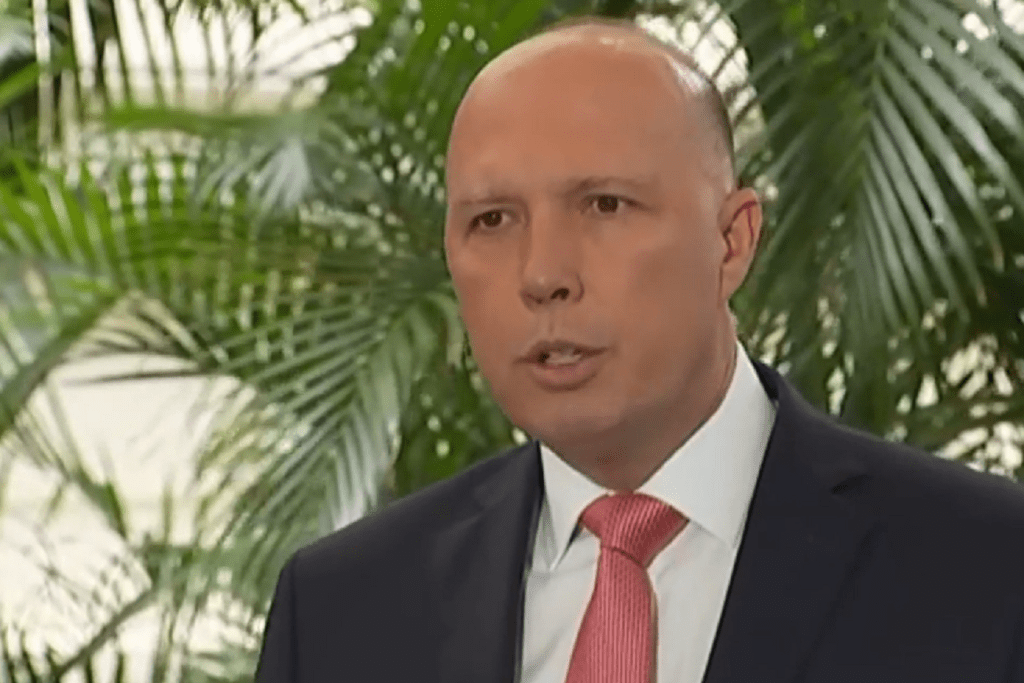Do CEOs always believe what they post on social media, and personally back 100 per cent the stance their companies take on key social issues?
Perhaps, not always. But they likely believe in the impact expressing such a stance has on their workplace culture, on employee retention and recruitment. They likely also recognise the impact on their consumers.
But Opposition leader Peter Dutton thinks they should stop.
While Dutton may not be the first person you’d think to turn to when it comes to considering “popularity” — his own popularity has dropped another two points to its lowest level since he took the leadership of the party, in polling out today — he has been expressing such comments about CEOs in an interview with The Australian, published today.
“To be frank,” Dutton said in the front page interview. “Some business leaders need to stop craving popularity on social media by signing up to every social cause, even though they may not believe in it.”
Dutton doesn’t seem to think highly of some of the biggest CEOs in the country at the helm of entities employing thousands of Australians, he said they are being “played for fools by the Labor Party.”
And he says that business leaders are saying one thing privately — but then not advocating for that position in public.
He also wants the business community to quit “staring down the extremes of ESG” (that is environmental, social and governance), and to stand up for the national interest, as opposed to the interests of industry super funds and proxy voters.
Those industry super funds actually represent possibly the broadest range of Australians possible trying to influence and initiate change at big corporates. A fund like HESTA, for example, which pushes companies on gender diversity and climate work, has more than one million members particularly across female-dominated workforces, and a powerful $43 billion under management.
Meanwhile, recent research indicates there are strong public expectations on CEOs to be publicly visible on social issues and current topics.
The 2023 published edition of the Barometer report found almost half of Australians (45 per cent) surveyed believe the country is more divided today than it was in the past, with the “rich and powerful” being identified as a key force in dividing society. Trust in government has dropped to 45 per cent, while trust in media (including social media) is down to 38 per cent.
But when it comes to employers, the trust trend is following a different trajectory.
A significant 75 per cent of Australians agreed with the statement, ‘my employer is trusted’, with trust building from expectations like taking a public stand on climate change (and demonstrating action on it), retraining employees and ensuring the community is safe.
The report found that internationally, CEOs are expected to help to improve economic optimism and to hold divisive forces accountable, with business being the only institution that is seen as competent and ethical. This barometer also showed the power of consumers in responding to CEOs taking a stance, with 63 per cent saying they buy or advocate for brands based on their beliefs and values. Overwhelmingly, those surveyed want to see more social engagement from businesses on issues like climate change, inequality, energy shortages, healthcare access, workforce reskilling and trustworthy information.
Globally, this research found 89 per cent of participants expect CEOs to take a public stand on the treatment of employees, with 82 per cent saying the same thing on climate change, 80 per cent on discrimination, and 77 per cent on the wealth gap.
Peter Dutton may not like what CEOs have to say on social media — especially when it fails to line up with the lines that he is personally pushing, but in this case chasing popularity can make good economic sense.


